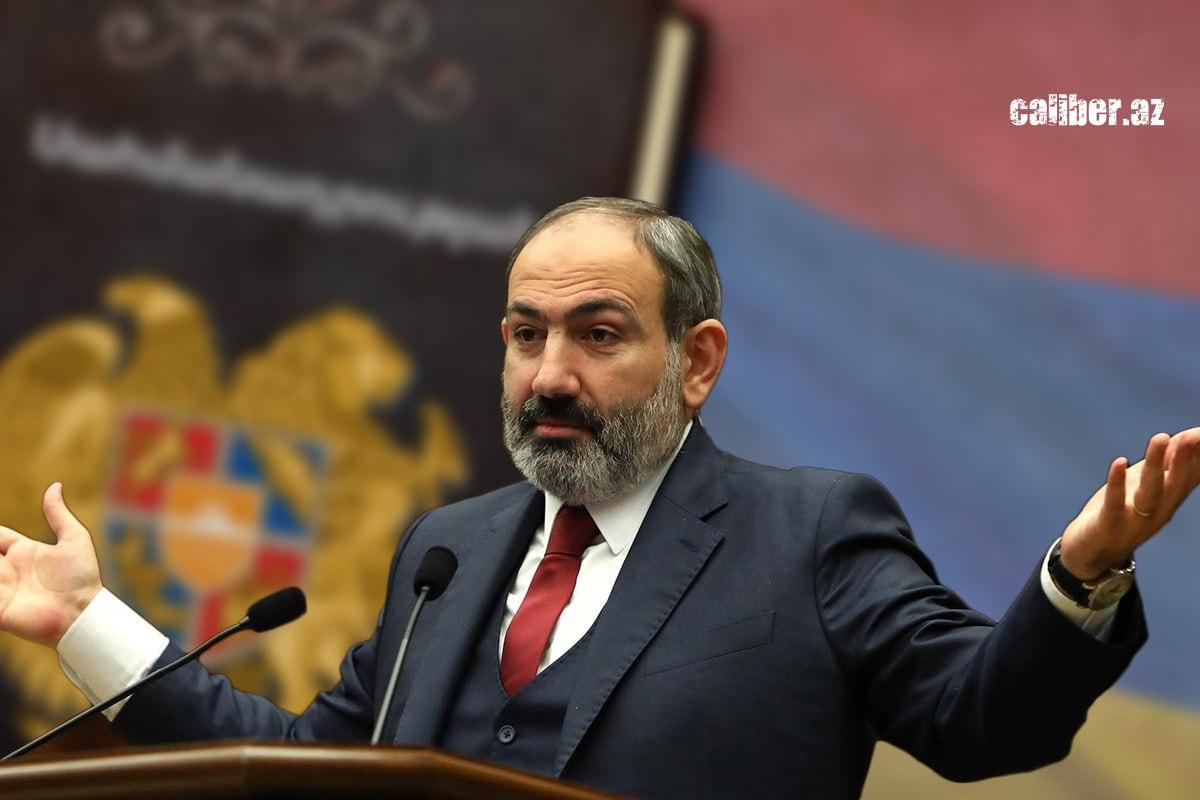Assessing Pashinyan's statements on normalizing relations with Baku Armenia's political shift
It seems that there is a certain turning point in Armenia's politics at this stage, pushing Yerevan towards normalisation of relations with Baku. Such a conclusion is suggested by the statements of Armenian Prime Minister Nikol Pashinyan, which he voiced the other day in an interview with the British media. In particular, he said that Armenia has no claims beyond its 29,743 square kilometres of territory and has no intention to wage war over Karabakh. At the same time, Pashinyan emphasised the importance of starting a practical process of border delimitation.
"We have started a practical process to delimit the border between Armenia and Azerbaijan, which is incredibly important, including to reduce security risks," Pashinyan said.
To begin with, Prime Minister Pashinyan's messages about the absence of territorial claims, as well as his assurances that Yerevan has no plans to go to war over Karabakh, are designed primarily for the attention and support of the international community. On the other hand, Pashinyan is well aware that the regional situation after the Second Karabakh War in 2020 and the final return of Karabakh to Azerbaijani control in September 2023 has completely changed in Azerbaijan's favour. And during the border incidents in 2021-2022, Yerevan was convinced that it was pointless to rely on the support of the CSTO and Russia. The organisation has repeatedly stressed that it cannot participate in the border disputes between Azerbaijan and Armenia, and the exact limits of the military bloc's jurisdiction can be established only after the delimitation of the Armenian-Azerbaijani border.
Therefore, during his dialogue with the residents of Ashagi Askipara village, Pashinyan made it clear that it is better to return the Azerbaijani villages under Baku's control by peace in order to avoid war and as a consequence another defeat. "Our policy is that we must prevent the outbreak of war. Also for this reason we have decided that we must go for clarification of the border in these areas," the Armenian prime minister assured. Simply put, Yerevan has realised that it is necessary to solve all issues with Baku directly and not to delay the process of border demarcation. This is firstly.

Secondly, Pashinyan's statements about the absence of plans to fight for Karabakh are also quite understandable: Yerevan has no real potential for war, and large-scale military-technical assistance from the West is only just emerging.
However, even though the Armenian leadership has recognised Karabakh's belonging to Azerbaijan, the country's Constitution still contains territorial claims to Azerbaijan. Accordingly, Pashinyan's statements about Armenia's lack of territorial claims to Azerbaijan are declarative in nature.
Nevertheless, Pashinyan's changed rhetoric clearly indicates an epiphany on the part of the Armenian leadership. And the movement on the issue of border delimitation is a positive signal for the settlement of Armenian-Azerbaijani relations. Azerbaijan, for its part, only welcomes this fact. The fact that agreements were reached without a single shot and bloodshed on the return of the non-annexed villages of the Gazakh region to Azerbaijani control is a serious achievement of Azerbaijani diplomacy, but at the same time, it is also an indicator that the Armenian authorities are beginning to understand that the only correct solution for Armenia is the establishment of normal relations with its neighbours - Azerbaijan and Türkiye.
Unfortunately, this task is made more difficult by destructive forces represented by the irreconcilable opposition, the Karabakh clan, revanchists and the Armenian Church, who make bellicose statements. And the protests against the return of four villages to Azerbaijan are a clear proof of this. In such a difficult situation, Nikol Pashinyan's further steps will show whether Yerevan is ready to follow the peace agenda to the end.







